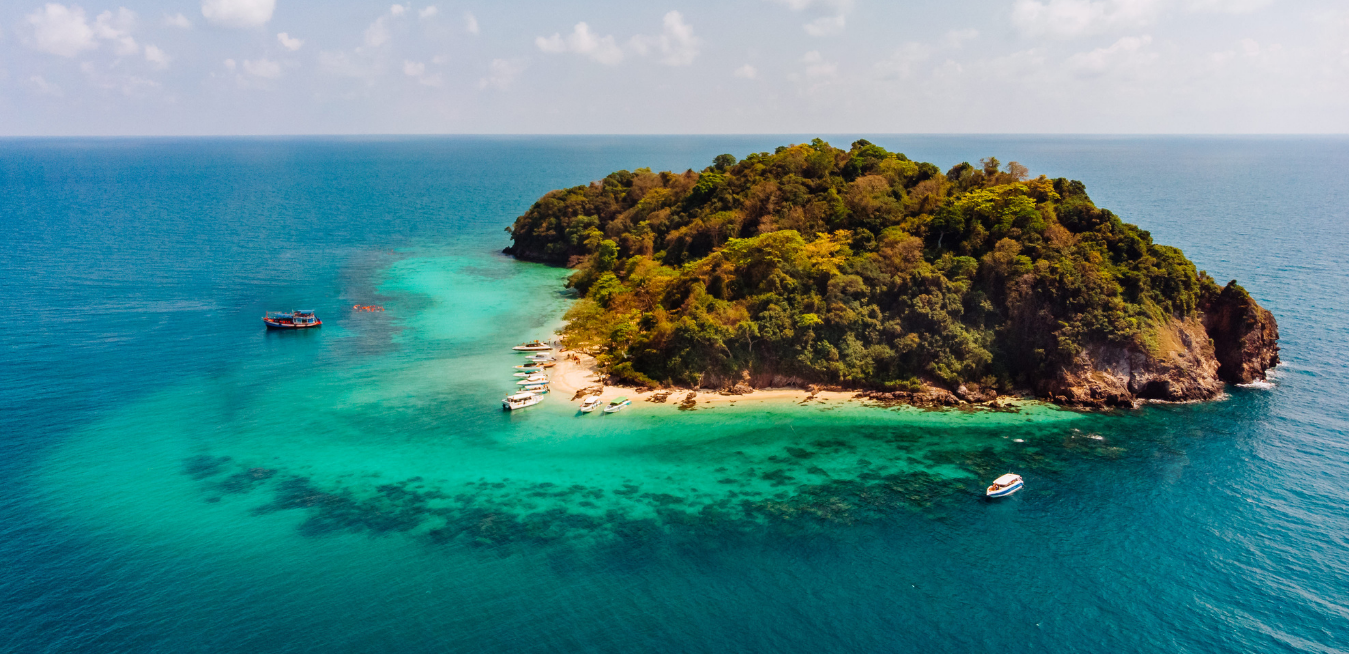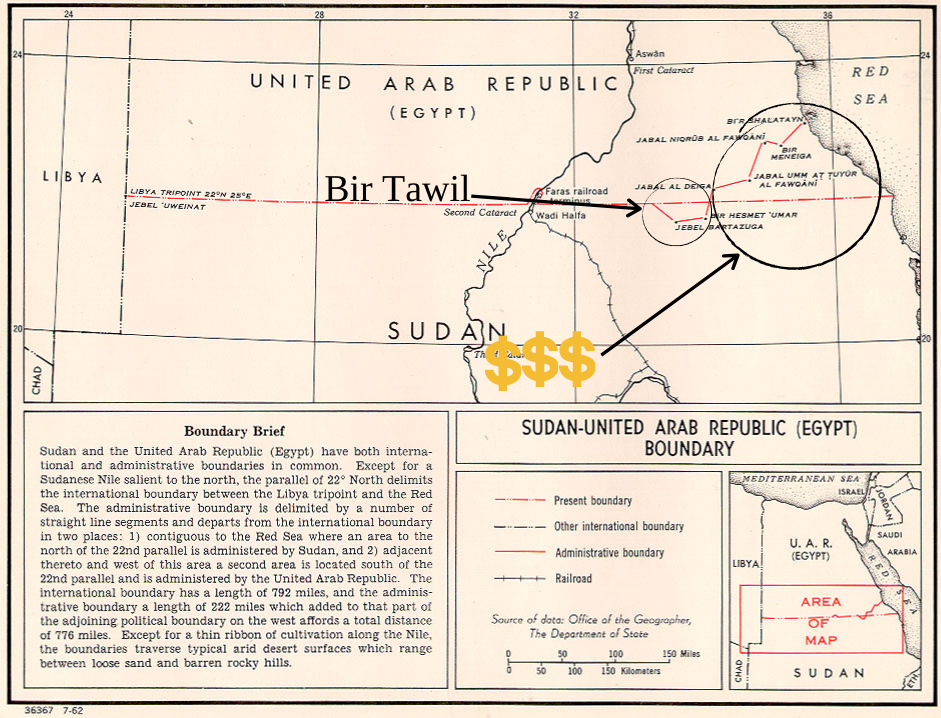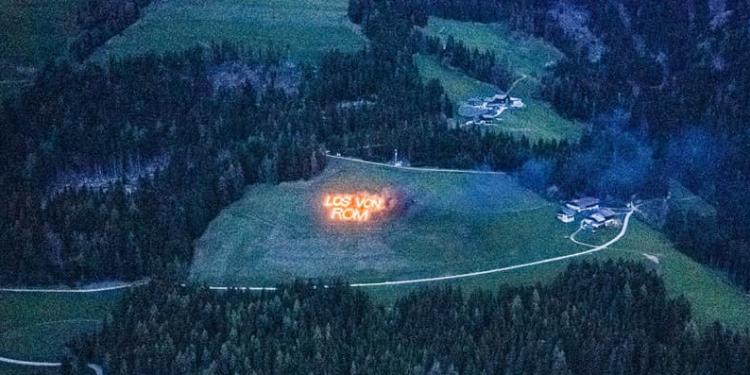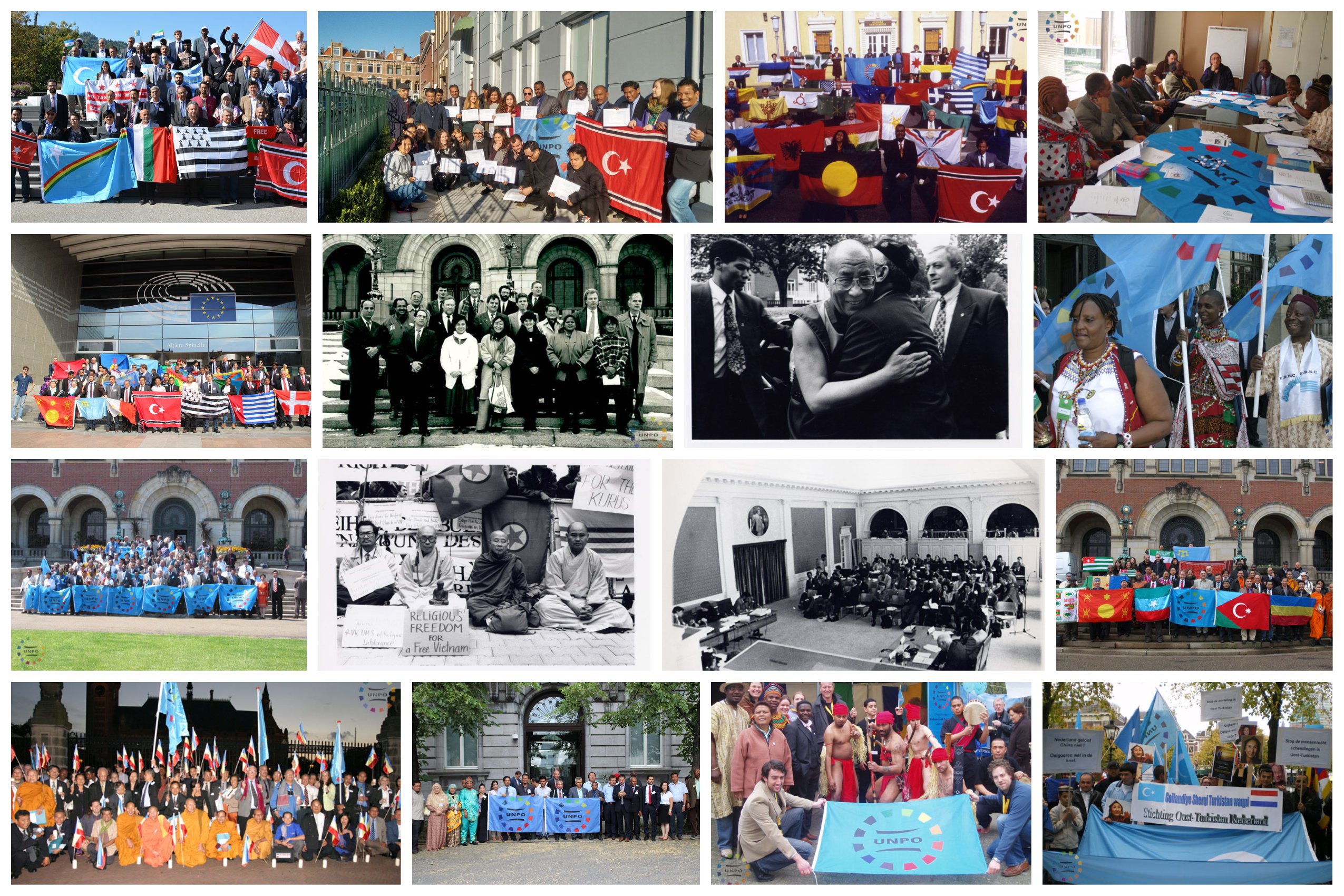How to start your own country in four steps

On 16th June 2014, Jeremiah Heaton declared 2,060km2 of arid land in Africa as the Kingdom of North Sudan, after promising his daughter that one day she would become a Princess.
Heaton, a farmer from the US state of Virginia, had been looking for unclaimed territory around the world and after some research settled on an area known as Bir Tawil, an uninhabited piece of land between Egypt and Sudan.
Due to two conflicting treaties drawn up by the British, both Egypt and Sudan interpreted the treaties as they saw fit. A claim on a piece of land close to Bir Tawil would disqualify the party from claiming Bir Tawil itself, and since the former enjoyed prospective mineral wealth, both sides claim this land as their own. Bir Tawil ended up a ‘terra nullius’ – land that belongs to no one until this was claimed by Heaton himself.

Rose Island
Like many others, I have recently watched ‘Rose Island‘ on Netflix and started to think about how countries we know today came to be. In the film, Giorgio Rosa, the real-life founder of the former ‘Republic of Rose Island‘, tried, in vain, to convince the United Nations, the Council of Europe and the Italian Government that since his artificial island was outside Italy’s territorial waters, it should be considered an independent state. While Rose Island and North Sudan are micronations – which are usually small in size, lack recognition from other states and are generally the creation of a single individual – their founding stories can tell us a lot about the challenges that proto-states meet with, and how countries are indeed volatile entities that can be created and destroyed.
When one thinks of countries like the United States, Russia, China, Japan or Germany for example, we usually consider these as permanent entities, however even these same countries had different borders, governments and cultures throughout their existence. While micronations cannot be compared to these countries, they do have one thing in common – they all are trying to find or maintain their place on the world stage.
So, how do you create a country? First of all – what exactly is a country?
While there is no single definition of what constitutes a ‘country’, there are some international guidelines that this entity must follow, for it to be recognised as such. The two main competing schools of thought are the constitutive theory of statehood and the declarative theory of statehood.
Big words, however, the main difference is that the first one only affords recognition to states that have been recognised by other states, while the second allows for an entity to declare sovereignty without having to be explicitly recognised as such by other states.
The declarative theory was codified in 1933 in the Montevideo Convention on the Rights and Duties of States and is used by many proto-states, including micronations to help prove their cause, as its the easier way of declaring sovereignty. This does not guarantee that someone following this theory is automatically considered a country. Let’s take a look at each one of the qualifications under this theory and see how they affect the aspirations of proto-countries, not only micronations but also regions and people fighting for their sovereignty.
The Convention states that “the state as a person of international law should possess the following qualifications”:
- Permanent Population;
- Defined Territory;
- A Government;
- The ability to enter into agreements with other states.
1. Permanent Population
The first qualification under this Convention is for the proto-state to have a permanent population belonging to the land one is claiming as a country.
The Sahrawi people in Western Sahara have been roaming the lands for hundreds of years. The area was governed by the Spanish until 1975 when Morocco, Mauritania and Polisario all claimed the land as their own.
In a dispute between the latter two, the International Court of Justice (ICJ) declared that Western Sahara was not terra nullius, as in the case of Bir Tawil, and before the Spanish conquered the area, there were tribes connected to Morocco, who were already living off the land. Morocco took this as a sign that it has historical precedent to control Western Sahara, even if the ICJ did not reach that explicit conclusion.
Earlier, the United Nations General Assembly adopted Resolution 1514 (XV) on 14 December 1960, which declared that non-self-governing territories have to “transfer all powers to the peoples of those territories, without any conditions or reservations, …. in order to enable them to enjoy complete independence and freedom.”

This is were Morocco and Polisario, which is recognised as the representative of the Sahrawi people by the United Nations, disagree. Polisario has been fighting for control of the land ever since, and after 1991 when a war between the Front and Morocco ended, the former only controlled a strip of land to the east of Western Sahara with the border of Mauritania.
The Sahrawis are banking that having a permanent population on the land would make it easier for them to declare independence of Western Sahara. However, even this hope is fading as Morocco has been increasingly moving Moroccans on the land, making sure that any future referendum, if it takes place, confirms its control on Western Sahara. Without outside pressure, especially from major players in the region and around the world, Polisario supporters and Sahrawis see little hope that someday they would control the area, despite their people having lived there for hundreds of years.
The case of Western Sahara contrasts with the tens of colonies that after World War II started gaining independence on account of their different cultures, languages and customs compared to the coloniser – and also as a result of the UN Security Council Resolution mentioned above. Even today, pro-independence parties and supporters in Catalonia and Scotland, for example, who have occupied their lands for hundreds of years, built institutions around their customs and passed on their language from generation to generation, claim their right to govern themselves as they see fit. The call for the sovereignty of these regions is, in fact, stronger than that of the people in Northern Cyprus, for example, whose claim for independence is the result of a military incursion in 1974. Article 11 of the same Convention even claims that states will not recognise territorial acquisitions claimed by force.
2. Defined Territory
Several proto-countries often start with this specification – finding or occupying a piece of land or estate – something tangible that can give the claim of a state a real feel. Some, like Heaton, go to great lengths to find land unclaimed by official states, while others declare regions or parts of their country as a separate entity. Rosa, in ‘Rose Island’, even built the artificial island himself.
On the night of 2nd May 2020, a number of slogans such as ‘Away from Rome‘ were written with fire on the side of the mountains in South Tyrol in what seems to be criticism by right-wing separatist supporters, against the centralisation of COVID-19 regulations by the Italian government.

The geographic position and history of South Tyrol with its neighbours and Rome, has led some movements to argue for the region to cede from Italy and join Austria. Pro-separatist South Tyrolean parties highlight their historical borders and their cultural and language differences with other parts of Italy as the reason why they cannot form part of the country.
Many regions around the world have promoted territorial separatism as a way to reduce tension, sometimes even violence, between people of different backgrounds and different cultures. This is not usually the case in most independence movements in Europe, such as in South Tyrol or Corsica. However, violence has sometimes been used by separatist movements who believe that this will accelerate their cause, and even by the Government of the country who believes it will keep these movements in check.
Even so, cases like South Tyrol, Corsica, West Papua (Indonesia) or New Caledonia (France), where there is an existing natural or man-made border separating people with similar backgrounds from other parts of the country tend to be more successful in making their case for independence accepted, or at least understood, within that same community and with the mainland. Compare this with people who have the same cultural background but are found in different regions/countries. One example is the case of the Kurds who are concentrated in parts of Turkey, Syria, Iran and Iraq. Without a single place to call home, Kurds have had to take up their quest for sovereignty with several regional powers, which has made it harder for them to claim territory. The Syrian civil war did provide hope for Kurds, after the setting up of Rojava or the Autonomous Administration of North and East Syria, which created a de facto proto-state controlled by Syrian Kurds. However, as soon as Turkey realised the danger of having an entity controlled by the Kurds right outside their borders, they invaded and re-took part of the lands aligned with Rojava.
Take also the example of Cyprus and the Turkish invasion in 1974, which de facto divided the country into two. Whereas before the invasion Greek-Cypriots and Turkish-Cypriots lived amongst each other all over the country, the invasion and subsequent building of borders, led to the separation of these two cultures. The now defined territory of the Turkish Republic of Northern Cyprus made it possible for some Cypriot-Turks to try and claim independence.
3. A Government
After identifying the borders of their territory, the second step usually taken by micronations is to form a Government, usually appointing themselves as Kings, Presidents or Princes and their immediate family members or friends becoming part of the Cabinet. Those who prefer a more formal pronouncement of their position also draft a Constitution which formalises this position and outlines how future Heads of State and Governments can come into power.
In 2015, a Czech politician claimed a plot of land between Serbia and Croatia – unclaimed by both – as the Free Republic of Liberland. Vit Jedlicka organised the newly founded country as a “constitutional republic with elements of direct democracy” with himself as President, and appointing others in important positions such as Secretary of State and Minister of Interior.

In newly created countries like Liberland with no historical precedent, creating a government is usually an easy straightforward matter without any oversight, however, in separatist regions the creation of a government is usually a much more sombre affair. With separatist movements in Catalonia and Scotland, for example, the interim governments of the would-be independent countries would be the same as those heading the current region in Barcelona and Edinburgh. These governments have been elected democratically by the locals, which enhances their claim to the position of power, and their institutions have experience in running the affairs of the state which will ultimately benefit the proto-country when it comes to step 4 of the qualifications under the Montevideo Convention.
Indeed, when the region of Catalonia briefly declared its independence in October 2017, despite not being recognised by any UN Member State, local governments in Flanders, Corsica, Sardinia and Scotland were among those that expressed their support for Catalans and their ability to decide their future. The Catalan regional government had previous connections with these regions, based on their politics of separatism and in fact, former Catalan President Carles Puigdemont took refuge in Flanders in a self-imposed exile, after being removed from office.
4. Entering into agreements with other states
This step might be the hardest for anyone looking to set up his/her own country. This is the real test of whether your newly-created country can flourish or not, and whether your country can truly play a role on the world stage.
In September 2020, Somaliland opened a Representative Office in Taiwan, after the latter opened its own Office a month before in the breakaway region, which officially forms part of Somalia, but has been acting on its own accord for the past 30 years. Somaliland is the more stable, more democratic and richest region in Somalia that organises democratic elections within its borders and increasingly acts on the world stage with moves such as this one. Somaliland also lately signed agreements with Ethiopia and the United Arab Emirates, not to mentioned its increasing cooperation the with United Nations.

Entering into agreements with other states also means that the other countries recognise your entity as an equal partner, if not as an outright sovereign country. This is a huge step in international affairs. One of the steps countries take when they do not agree with each other is to recall their Ambassador, breaking off relations and any possible agreements. At the same time, therefore, a country opening an office, Embassy or even signing a document with your state is giving a more formal recognition which creates a precedent and helps your cause.
The case of Somaliland is an interesting one and is one to follow in the near future. Somaliland is increasingly making the case for its sovereignty despite having no major backing from the world’s powers. Other new countries such as Kosovo and South Sudan both had the explicit backing of the United States, which pushed their claim for independence forward, however, the case of Somaliland has been largely homegrown. Their track record on stability and democracy and their recent agreement with Taiwan might also promote better relations with the US under the TAIPEI Act of 2019, which rewards Taiwan’s international alliances.
Now what?
So your newly set-up country managed to obtain the four qualifications. Good. This does not, however, put you on equal footing with the United States of America, Germany, or Indonesia. You might want to apply to the United Nations, which for many is the ultimate benchmark for a proto-state to be considered a country. If you need a template for the application, here [PDF] you may find a copy of the letter sent by Switzerland to the United Nations Secretary-General back in 2002, asking it to become a member.
The UN has 193 member states and 2 non-member observer states (the State of Palestine and the Holy See), however, there are some notable absences from entities that are still considered as a country by many. These include Kosovo, the Republic of China (Taiwan) and if you speak to their founders, the many micronations that exist around the world. Many of these un-recognised regions often join the Unrepresented Nations and Peoples Organization (UNPO), and some former members of the UNPO have indeed taken the promotion of becoming fully integrated on the world stage, such as Armenia and East Timor, who became UN member states in 1992 and 2002, respectively.

One thing in common with all ‘startup countries’ who eventually entered the world stage is that none of them endangered the position of the world powers and the status quo on the world stage. Those that do, will probably fail. Taiwan’s quest to get more countries to recognise its independence from the People’s Republic of China continuously loses steam, as the latter uses its economic and financial power to make sure that other countries follow the One China policy. In ‘Rose Island’, [SPOILER] the artificial island ended up destroyed by the Italian Navy after its existence posed a direct threat to Italy’s hegemony in the area. On the other hand, independence movements that do not alter this world order or even have the backing of this same order, can be potentially successful, such as the cases of Israel and East Timor.
Another common theme with successful countries is that sovereignty recognised on the world stage plays out over the years, where you create a precedent and one thing leads the next. ‘Startup countries’ usually try to involve themselves in different fora and international organisations so as to create a precedent and acquire a foothold to other organisations and ultimately the United Nations. They also strengthen relations with other proto-states such as with Taiwan and Somaliland, which helps their cause in the long term.
Okay, so there are more than four steps. These last three are more the result of realpolitik rather than any written laws, however, they will help you to create a country where you can “live according to your own rules” or rather those imposed upon you by other states, but that’s for another time.
Thank you for reading. Sign up below to receive similar posts in the future.